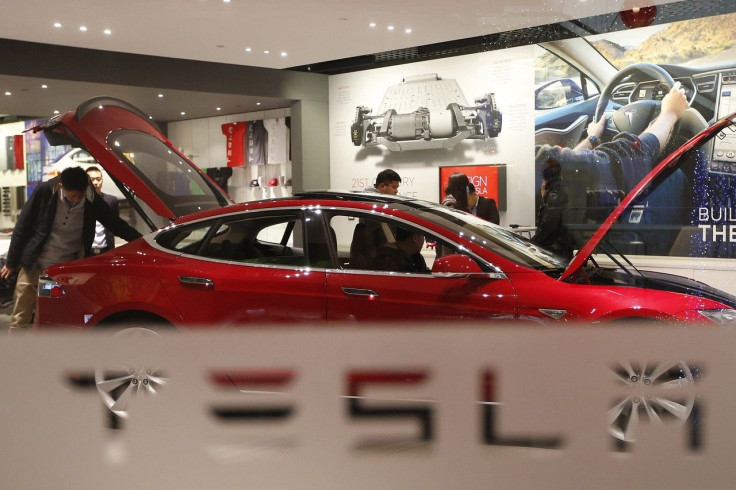Tesla Motors Inc.: Chinese ‘Hiccup’ Is A Significant Challenge For Tesla Model S Maker

Tesla Motors’ plan to slash its China sales force had been expected for nearly a month after CEO Elon Musk criticized the team on Feb. 12 for telling customers it was difficult to charge the Model S in China. But following a report Monday out of Shanghai that the company will reduce its workforce there by a third, or 200 employees, the company’s stock price ended the day down 1.55 percent to $190.88, its lowest closing price since May 15.
The company’s stock is now trading $100 off its all-time closing high of $286.04, which it reached on Sept. 4. The company’s stock price has dipped nearly 12 percent since Tesla reported on Feb. 11 a $108 million net loss in the fourth quarter. Tesla began selling its Model S in China last August in an effort to cash in on the country’s fast-growing luxury car market.
“It’s an important growth market for them and the fact sales are weaker than expected is a negative for their story,” said S&P Capital IQ automotive equity analyst Efraim Levy. “China is a potential hiccup to their growth plan.”
Tesla has not confirmed how many in its Chinese workforce are being cut, but in a February conference call following the announcement of the company’s fourth-quarter results, CEO Elon Musk indicated his unhappiness at his China team’s performance. “This whole China thing has been blown way out of proportion. We didn’t execute people well on China last year,” he said during the Feb. 11 call. “Unfortunately, this sounds kind of brain-dead, but our sales team was telling people that it was difficult to charge [electric cars] in China.”
Indeed, one reason electric car sales in China have been slow to take off is a lack of infrastructure. Tesla’s supercharger stations are still being fleshed out, so Chinese consumers are taking a wait-and-see attitude toward the Model S.
Tesla began delivering its cars to China early last year, and Tesla Model S sales there began to pick up in September, according to vehicle-registration data compiled by JL Warren Capital, a China-focused equity research firm. Monthly Model S registrations in China, a solid measure of how many cars a company is selling, remained above 400 vehicles a month through January. But shipments of cars to China from California have dropped off precipitously, with only 10 vehicles in January. This suggests the company has an ample supply of its cars in China to meet demand.
Tesla doesn’t disclose monthly sales data like other automakers, so the closest ongoing measure of the company’s performance comes from government vehicle registration data. The company says it doesn’t reveal these numbers because it’s facing a supply constraint. Musk says it can’t produce the cars fast enough to meet demand. But for now that’s not a problem in China.
© Copyright IBTimes 2024. All rights reserved.





















